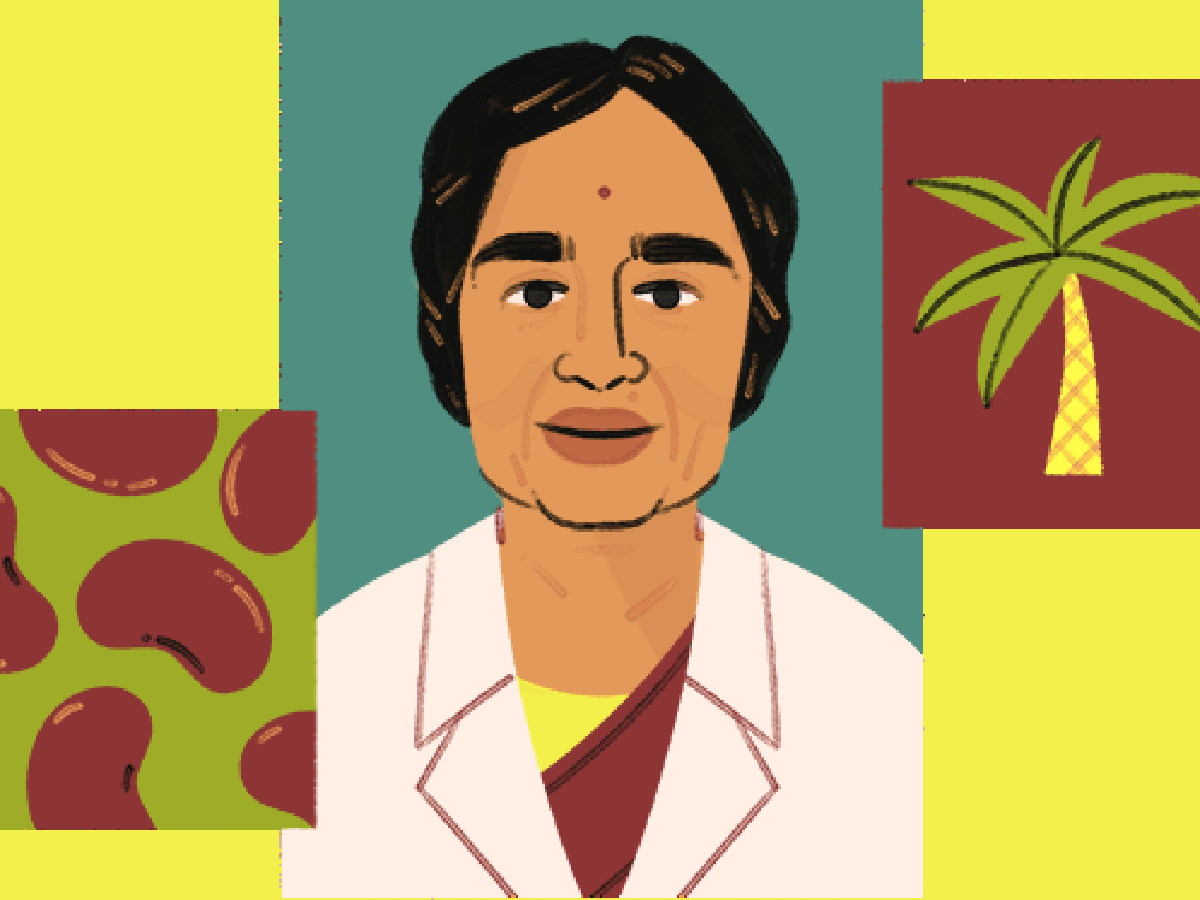Kamala Sohonie, born on June 18, 1911, in Indore, Madhya Pradesh, was a trailblazing Indian scientist. She became the first Indian woman to earn a Ph.D. degree in a scientific discipline. Despite facing gender bias within the scientific community, including opposition from Nobel laureate CV Raman, Sohonie persevered and made significant contributions to the field of biochemistry.
Kamala Sohonie’s groundbreaking research on Neera, a palm extract with the potential to combat malnutrition among tribal communities in India, earned her the prestigious Rashtrapati Award.
Early Life and Academic Journey
Kamala Sohonie’s father, Narayanarao Bhagvat, and his brother Madhavrao Bhagvat, were both chemists who had studied at the Tata Institute of Sciences (now the Indian Institute of Science, Bengaluru). Inspired by their footsteps, Kamala graduated in 1933 with a B.Sc. degree in Chemistry (principal) and Physics (subsidiary) from Bombay University, where she topped the merit list. Her pursuit of higher education led her to apply for an M.Sc. degree at the Indian Institute of Science, which was then headed by CV Raman.
Buy Prime Test Series for all Banking, SSC, Insurance & other exams
Run-in with CV Raman
Raman dismissed Kamala’s application, stating, “I am not going to take any girls in my institute.” Undeterred, Kamala confronted Raman in person in Bengaluru. She challenged him to allow her to complete the course with distinction, which eventually led to her admission. However, Raman imposed several conditions, including not recognizing her work until approved by him and placing her on probation for an extended period. Despite the challenges, Kamala completed her course with distinction, prompting Raman to revise his opinion about women in science.
Work at Cambridge and Beyond
After completing her M.Sc., Kamala Sohonie earned admission to Cambridge University in 1936, where she completed her Ph.D. in a remarkable 14 months. Her research at Cambridge focused on potatoes, leading to the discovery of the enzyme ‘Cytochrome C,’ an essential protein involved in cellular respiration. She returned to India in 1939 and served as the head of the Department of Biochemistry at Lady Hardinge College in New Delhi. She later worked as Assistant Director of the Nutrition Research Lab in Coonoor before joining the Royal Institute of Science in Mumbai. At the Royal Institute, she conducted studies on various food items to identify their nutritional composition.
Contributions to Neera and Health Improvement
Kamala Sohonie’s notable contributions revolved around her work on ‘neera,’ a drink made from palm extract. This research was initiated at the suggestion of Dr. Rajendra Prasad, the first President of India. Sohonie’s studies demonstrated that neera was a rich source of Vitamin C and other vitamins, as well as sulfhydryl compounds that protected vitamins during storage. Recognizing the potential of neera as an affordable and nutritious supplement for impoverished tribal communities, she worked tirelessly to popularize its consumption. Introducing neera into the diets of malnourished tribal children and pregnant women resulted in significant health improvements.
Advocacy and Legacy
Throughout her career, Kamala Sohonie faced gender bias and discrimination. However, she remained steadfast in her pursuit of scientific excellence and paved the way for future generations of women in science. Her achievements and advocacy played a vital role in challenging prevailing stereotypes and inspiring young women to pursue scientific careers. Sohonie passed away on June 28, 1998, leaving behind a legacy of resilience, determination, and groundbreaking research.



 Indian Olympic Medal Winners List Till N...
Indian Olympic Medal Winners List Till N...
 Who is the Inventor of the Gramophone?
Who is the Inventor of the Gramophone?
 HS Dhaliwal Appointed New DGP Of Andaman...
HS Dhaliwal Appointed New DGP Of Andaman...
